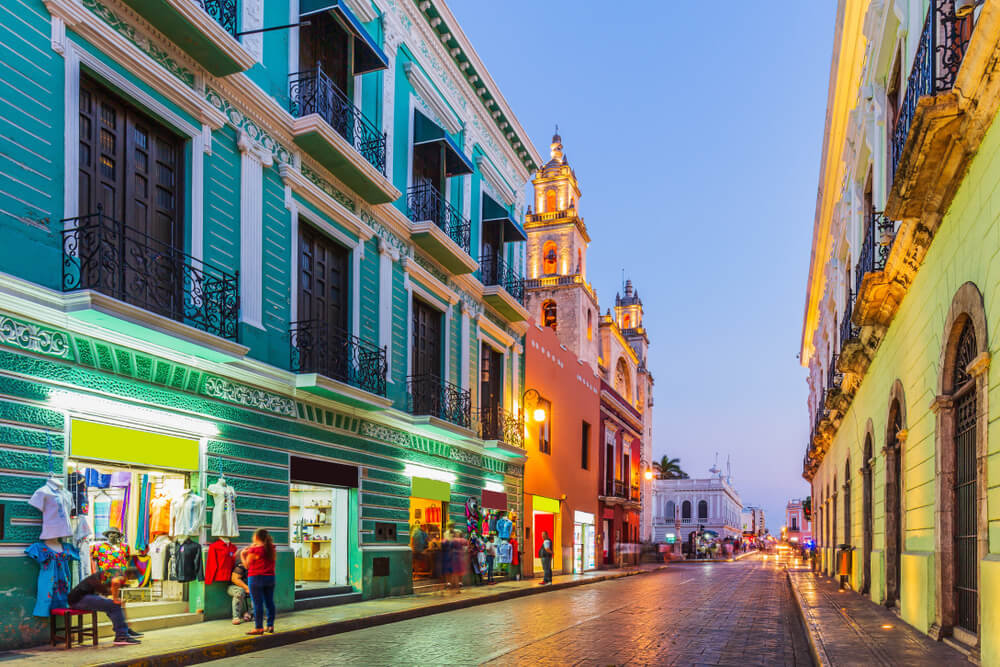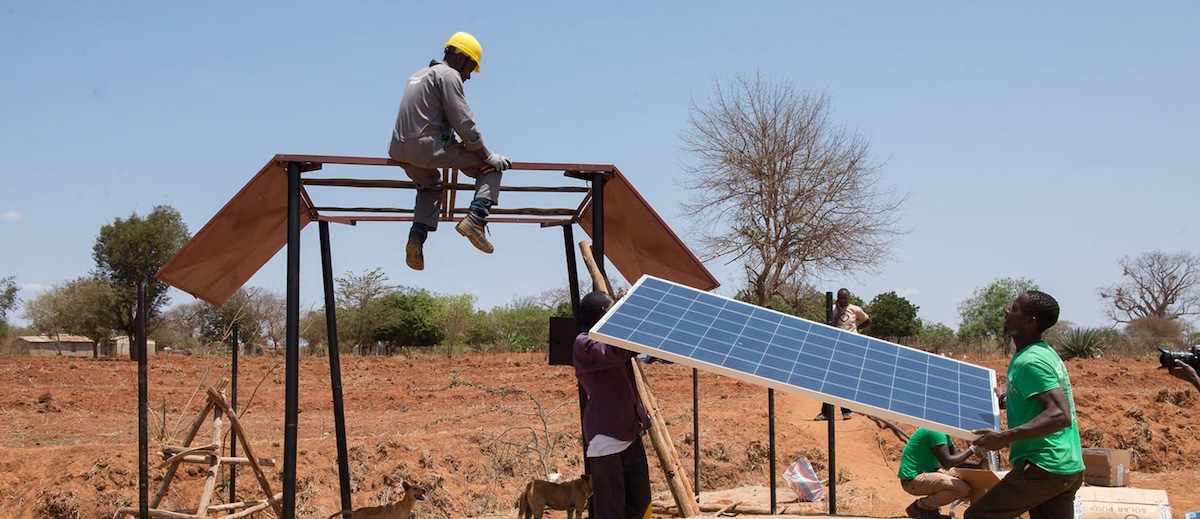ImpactAlpha, March 15 – The $15 billion flood of venture capital into Latin American startups last year caught even veteran investors by surprise.
“I have been working in this industry for 18 years and what happened in the last couple years, to be honest, I didn’t see it coming,” New Ventures’ founder Rodrigo Villar says in a Q&A with ImpactAlpha. “The number of funds that came into Mexico with big chunks of money was just unprecedented.”
Dozens of companies have achieved unicorn status, including eight in Mexico. Earlier this year, Latin America saw its first impact startup pass the $1 billion valuation mark: Chilean insurance tech B Corp. Betterfly.
It wasn’t the pandemic that changed things. It was the entry of mega venture investors into Latin America, such as SoftBank, which launched a $5 billion fund in 2019 (SoftBank followed that up with a $3 billion LatAm fund last year). Since then, says Villar, venture investing in the region has gotten bigger, faster and more sophisticated.
Impact investors are reassessing their roles in the crowded market. “Now you’re competing with hundreds of different funds, including angel and seed investors,” observes Villar. “Impact investors need to think more radically about adding value, not just money.”
Tying carried interest to impact funds’ performance should become the norm, not the exception. Intentionality should be the flag that all impact funds wave.
New Ventures is trying to walk that talk with a raft of new acceleration programs and a fund committed to cutting early-stage checks in the region’s secondary markets, like Colombia and eventually Ecuador.
It also has plans for a series of funds from its venture investing arm, New Ventures Capital, that will focus narrowly on individual markets and sectors. First up: a women-focused health tech fund.
The drive to be more innovative influenced Villar’s decision, with partner Eric Wallsten, to sell their revenue-based financing fund Adobe Capital to Canadian investment firm Deetken Impact last year. “To move forward, we need to take bigger steps,” Villar says of the impact investing community.
The Latin American Impact Investing Forum, hosted by New Ventures, kicks off in Merida, Mexico this week. Its theme: moonshots. Villar spoke to ImpactAlpha about the state of impact investing in the region, why investors need to go bolder, and the next hot market (health).
ImpactAlpha: Venture capital in Latin America hit $14.8 billion last year—a 175% increase from 2020. It’s a frothy market all over the world now, but you’ve been in this game a long time. What’s your take on how we got here?
Rodrigo Villar: I have been working in this industry for 18 years, and what happened in the last couple years—to be honest, I didn’t see it coming. The number of funds that came into Mexico with big chunks of money was just unprecedented.
It started with SoftBank. SoftBank came to Latin America with this $5 billion fund, and then we got the Tiger Global and the QED Invest and all of these big funds then started investing in Mexico.
It’s something we probably needed. I remember having an early talk with an investment officer of SoftBank when they just arrived in Mexico, and we had a discussion about the pipeline for a $5 billion fund. Then, I think the biggest local fund was $100 million. So I asked them, “Where are you going to put that money?” And they said, “There’s much more pipeline than we expected.”
ImpactAlpha: Not all of SoftBank’s big bets have panned out. What has been the impact of those funds on venture investing in the region?
Villar: For me, it was a shift in mindset on how you invest venture capital. In Mexico or Latin America, we were used to doing a little bit of private equity. We were funds that were investing $5 million or $10 million ticket sizes. And then here come these guys, and they deploy money very fast.
What they did is they came to Latin America and went to the top accelerators, to the Y Combinators, and they found the disruptors, the guys who were already raising their Series B. And they put big chunks of money in those companies. That’s something we didn’t see before.
And the effect? We didn’t have a single unicorn in Mexico before. Last year, we had eight. And the same effect happened all across Latin America.
ImpactAlpha: A lot of investors now feel that valuations are, well, too high.
Villar: Valuations have increased a lot because a lot of people who were not investing in funds, or not investing equity—now they’re doing it. Two years ago, as an investor, you made the rules, you set the valuations, and you were alone in the world. Now you’re competing with hundreds of different funds, including angel and seed investors. Before, there were a lot of early-stage gaps.
Also what happened is that founders got much more sophisticated. When we started Adobe Capital, every company we saw had issues. We’d start with due diligence and find companies that weren’t keeping the best track of their data or accounting. Now you see a new generation of founders, and they start from scratch, they have a playbook. They incorporate in Delaware, they hire a CTO and a CFO, they have the perfect pitch. They are building companies to raise money.
Accelerators like Y Combinator, 500 startups and Latitude also got more sophisticated. Their focus is just on helping founders raise their next round of investment.
The whole wheel it’s working much better than it used to be. There’s been a big shift.
ImpactAlpha: What role, if any, did impact investors play in building Latin America’s current venture investing environment?
Villar: The funds that were early in the market have proven to be successful and proven the need for impact capital. Success stories are starting to show.
We just had our first social unicorn in Latin America: Betterfly. Betterfly is a B Corp., and what they do is provide insurance to companies, as well as wellness for the employees of those companies. They do it in a gamified way, so employees get perks for those wellness activities. And by doing that, they reduce the risk on the insurance.
It has become the poster child of impact investing.
ImpactAlpha: In light of the frothy venture investing market, and the high valuations, and the fierce competition for deals, how do impact investors stay relevant?
Villar: Our role is going to have to be much more radical. We cannot keep going with this middle-road. Impact investors need to think more radically about adding value, not just money.
For founders, the impact world has a lot of benefits. If you can get into the world of impact, you can reach investors with a different mindset or vehicles with blended finance or cheaper debt. If a fund can offer those perks, that will be a competitive advantage.
ImpactAlpha: But blended finance, which leverages public or philanthropic capital to increase private investment in sustainable development, has really struggled to gain traction.
Villar: [In Latin America], there is a lot of money coming into blended finance now. I’m kind of overwhelmed by how many foundations want to get into blended-finance, who are willing to take a lower rate of return for impact.
There’s an excess of liquidity in the world. Also, many LPs and asset owners are looking to have deeper impact with their philanthropic capital. Some of the huge impact funds that have come to market are really more ESG than impact, so investors aren’t seeing the impact [they want] in the traditional impact funds.
I think we’re going to see many more blended-finance vehicles in the coming years. And those blended-finance investors are going to be very competitive, because they’ll be able to invest early into companies, and beat other early investors. The only issue is usually blended finance funds are not designed to be scalable.
ImpactAlpha: What other ways should impact investors be more “radical” with their investment strategies?
Villar: Carried interest, for example, should be linked to the performance of the fund. There are a lot of funds right now that say they’re impact, but they’re not. They like it, but it’s not their first priority.
Also, intentionality should be the flag of the impact funds. A lot of these unicorns are just about growth. We need to be focused on meaningful impact companies whose mission and reason to exist is to solve a problem, and impact funds should be leading those deals.
If we stay in the middle, we’re going to lose a lot of the reason why we exist.
ImpactAlpha: And how does New Ventures define “radical” for its own impact approach?
Villar: We launched New Ventures Capital, which is investing in Colombia and eventually will move into Ecuador. In Latin America, Mexico and Brazil are of course the biggest economies. But Colombia is a very entrepreneurial country, and for most of the entrepreneurs there, their mindset is to grow outside of the country. We’re looking at fintech, education tech, health tech and HR tech.
We’re about to close our second deal and are looking to do about 20 deals. Ticket sizes are between $300,000 and $500,000, plus other capital that comes in from an angel network we’re putting together in Colombia.
On the debt side, we started Viwala, which is a lending vehicle that is focused on women. We’re applying the lessons we learned at Adobe Capital about how to do revenue-based lending, but much faster and on a bigger scale. We’ve done about 60 deals. Tickets are small—about $40,000 to $50,000—but we can deploy those loans in 48 hours.
With Viwala, we think we can go much deeper into the impact debt ecosystem, where there’s a big need.
New Ventures is also still doing acceleration, and we grew a lot in the pandemic. We now have 14 different programs with Ikea, Facebook, Shell, Citi, BBVA, Metlife and the Swiss Cooperation agency. Some of them include investing.
In the future, we want to build a facility that can execute different funds for a specific industry or region. Something we learned from Adobe is that we need a much broader view and many more instruments. What we’re trying to do with New Ventures Capital is have a central operation on the financial side, but to run different funds for specific industries or regions.
We are looking to structure it as a more traditional, VC-oriented fund, because the market is there. But we want a vehicle that can invest in really early-stage technology companies.
ImpactAlpha: But given how competitive the market is, in what geographies or industries can you still win deals with a traditionally-structured fund?
Villar: The first one that we have in the pipeline will target women’s health across Latin America. We just finished an acceleration program where we selected a number of entrepreneurs in women’s health with the idea of understanding the market, the entrepreneurs’ needs, and to come up with a financial mechanism that could tackle this industry.
The market is huge. There’s going to be a lot of innovation. After what we saw in fintech, I think the health industry is going to be the next big thing.











